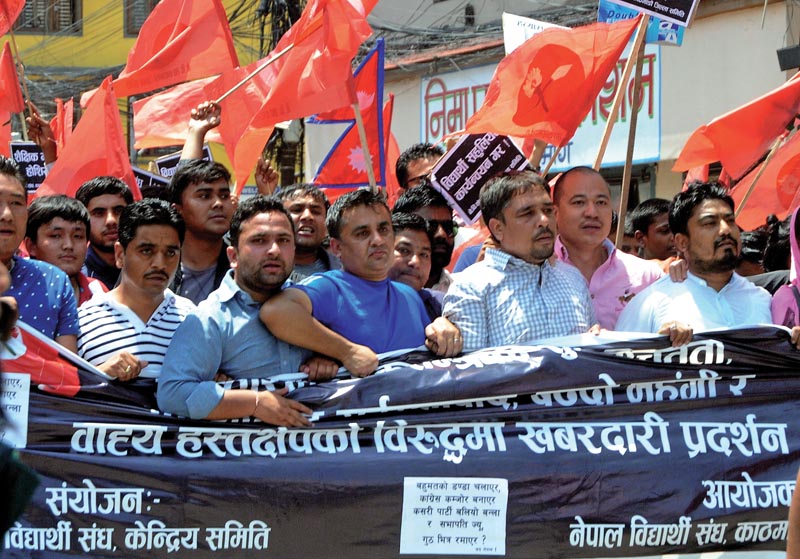Brace for another fuel price hike
Kathmandu, May 25
The government’s unwillingness to adopt necessary steps to tackle the surging global fuel price has left Nepalis bracing for yet another hike when Nepal Oil Corporation revises fuel rates the next time.
April’s global crude oil price, which was recorded at $68 per barrel on an average, reached almost $80 per barrel today. This means that the price list sent by Indian Oil Corporation — the sole supplier of petroleum products to Nepal — will also most likely show increased rates of fuel being provided to Nepal.
The country had adopted an automatic price adjustment mechanism four years ago, which allowed NOC to adjust the fuel rates based on the IOC’s price list twice a month. While the move minimised the chances of NOC incurring losses, it has provided no relief for consumers. In contrast, the Indian government announced yesterday that it would take a long-term view on retail pricing of petrol and diesel to shield consumers from volatility in global markets and hinted that it could even change the way pump prices are calculated.
The Nepal government, on the other hand, seems reluctant even to mobilise existing legal mechanisms to stabilise fuel prices.
When adopting the pricing mechanism, the government had also established a price stabilisation fund to which Nepali fuel consumers were initially contributing Re 0.5 per litre and are chipping in a rupee per litre now.
While the size of the fund has now ballooned to over Rs 4 billion, the government has done absolutely nothing to utilise the money for the benefit of consumers.
According to Sushil Bhattarai, acting deputy managing director at NOC, mobilisation of PSF is not under the jurisdiction of NOC management, as a separate committee headed by the minister for industry, commerce and supplies looks after PSF.
“Actually the automatic pricing mechanism and PSF contradict each other because one becomes dysfunctional when the other is implemented. But PSF could be a crucial tool during emergencies,” added Bhattarai.
On the other hand, the Ministry of Industry, Commerce and Supplies is learnt to be in no mood to mobilise the fund any time soon. PSF and other supply-related issues are under less priority of the MoICS, as the government is yet to name the secretary to look after supplies issue at MoICS.
Consumer rights activists have opined that the government should rightly stop charging customers extra amount for PSF. “The fund should be dissolved if it does not have any usability,” said Madhav Timalsina, president of Consumers’ Right Investigation Forum.






